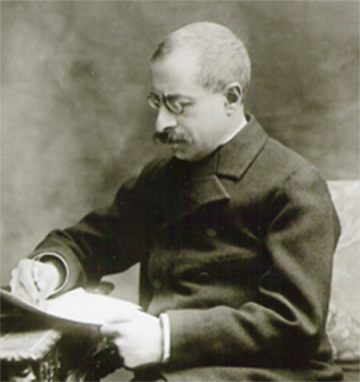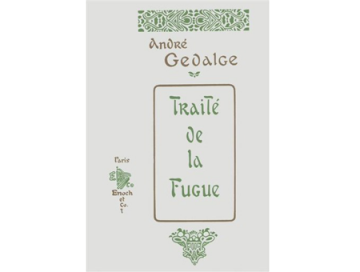




Gedalge was one of the most noteworthy musician from his generation, an incredible composer and above all an excellent teacher. He influenced several generations of musicians. He started his professional life as a publisher and a bookseller. At the age of 28, in 1886, he started music studies and integrated the Paris Conservatory. One year after, he won the second Rome Prize.
For his first job as a teaching assistant, he was in charge of the preparation of Guiraud and Massenet’s classes. In 1905, he was appointed teacher of counterpoint and fugue at the Paris Conservatory. He had famous pupils such as André Bloch, Georges Enesco, Arthur Honegger, Charles Koechlin, Darius Milhaud, Maurice Ravel...
In 1895, his opera Pris au Piège was awarded the prix Cressant. In july 1900, his one-scene ballet Phœbé was created at the Opéra-Comique. Gedalge wrote a Quatuor d'archet, a medley of melodies les Vaux de Vire, songs for kids called chansons enfantines and three symphonies which perfectly illustrated the style called “pure music.” Gedalge’s third Symhony in F Major and his Concerto for piano and orchestra written in 1899 are considered as masterpieces of French music.
But Gedalge is mostly famous for his educational methods. He wrote a book called l'Enseignement de la Musique par l'éducation de l'oreille (Music teaching through ear training) in 1922. His masterpiece is his Traité de la fugue (Treaty of the fugue) written in 1904 which is still the best reference nowadays. His unpretentiousness led him to a discreet destiny but he gained in popularity thanks to his pupils’ recognition.
Written in 1904, this treaty is divided into three parts. In the first one, the general principles of the fugue are detailed and most specifically the principles concerning the school-fugue. The second part deals with the different forms taken by a fugue as a means of composition. The third part is about the links between a fugue and the art of the musical development. Nowadays, the Treaty of the fugue is still the best reference concerning musical composition.
View works